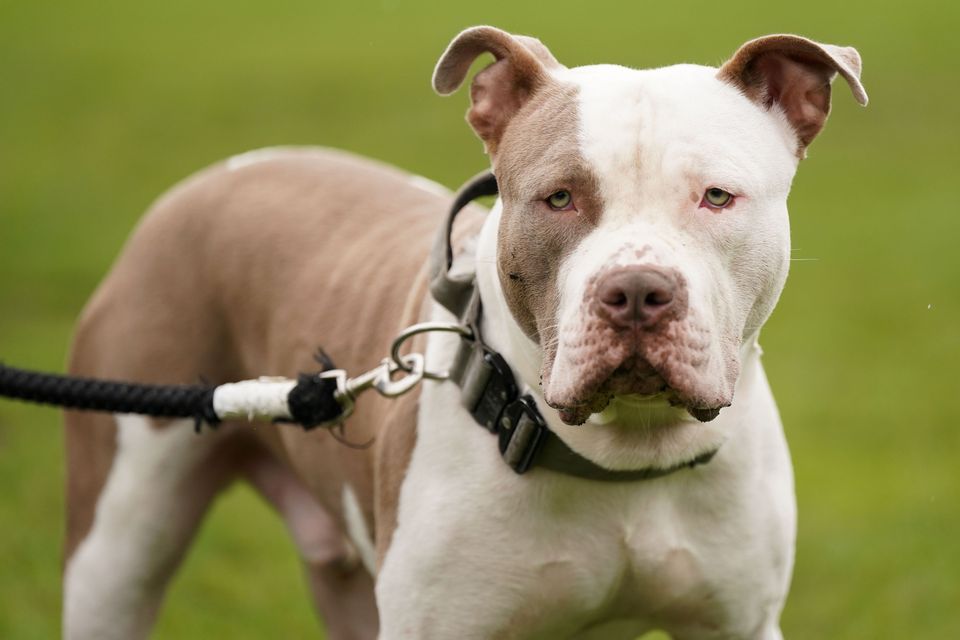Ireland to ban certain electronic shock collars on animals but not for owners already using one
Photo: Jacob King/PA
The electronic shock collars operated by remote controls are to be banned, Minister for Agriculture Charlie McConalogue announced on Tuesday.
Following a public consultation, the Minister has made a decision to move to ban the use of electronic shock collars operated by hand-held remote controls on dogs and cats.
However, pet owners who already use the shock collars on their animals may continue to do so but only for those dogs.
These owners will need to register their dog’s identity with the Department of Agriculture, exempting their dog from the new laws.
They would need to provide their dog’s microchip ID and licence number to continue to use shock collars for the lifetime of that dog.
Dog owners would have to register their dogs within three months from the date of introduction of this regulation, which will also provide for exemptions allowing the use of these devices on deaf dogs.
Today's News in 90 Seconds - May 8th
The ban is to be enforced in the coming months, Mr McConalogue said.
Meanwhile, the ban does not relate to anti-bark collars, collars linked to boundary fences or remote fending to control other animals.
“Dogs and cats are much-loved companions for so many of us in Ireland, and the use of manually operated remotely-controlled electronic shock collars is not an appropriate way to treat them,” Minister McConalogue said.
“Many organisations and individuals have highlighted the welfare problems these collars can cause.
"The Advisory Council on Companion Animal Welfare, which I set up in 2021, has also advised me on this matter and on that advice, I will be introducing a regulation in the coming months to ban their use.
“While I believe these devices should not be used on dogs or cats for welfare reasons, I have listened carefully to those who have raised their concerns about a ban.
“I recognise that some of the small number of dog owners, who currently use these shock collars, expressed worry about controlling their dogs if they stop using them.
“For that reason, I intend to permit those who currently use shock collars on their dogs to continue to do so, but only for those dogs,” he said.
The ISPCA has said they “welcome” the announcement to ban the electronic shock collars.
The organisation believes that positive reinforcement and reward-based methods should be used instead of negative reinforcement and aversive training methods to control companion animals.
Those negative reinforcement methods are based on applying an unpleasant stimulus to eliminate or prevent unwanted behaviour, including electric shock collars, choke chains, prong collars, or using high-pitched sonic devices.
In response to concerns expressed by farm organisations concerning dog attacks on sheep, Mr McConalogue has urged all dog owners to “always keep their dogs under control if they are anywhere near livestock, especially sheep.”
“Dog owners must act responsibly in the countryside and should not exercise their dogs on farmland unless they have the clear permission of the farmer.
"It is a legal requirement that dogs are accompanied and kept under effectual control. For dogs on the list of controlled breeds (or their crosses), they must be kept on a short lead and muzzled while in public places.
“No dog owner should ever put sheep at risk by acting irresponsibly or by exercising their dog off the lead in such a way that they cause stress and fear, even if the sheep are not physically attacked I say to dog owners: keep your dogs on a lead at all times if there are sheep nearby,” he added.
Join the Irish Independent WhatsApp channel
Stay up to date with all the latest news















